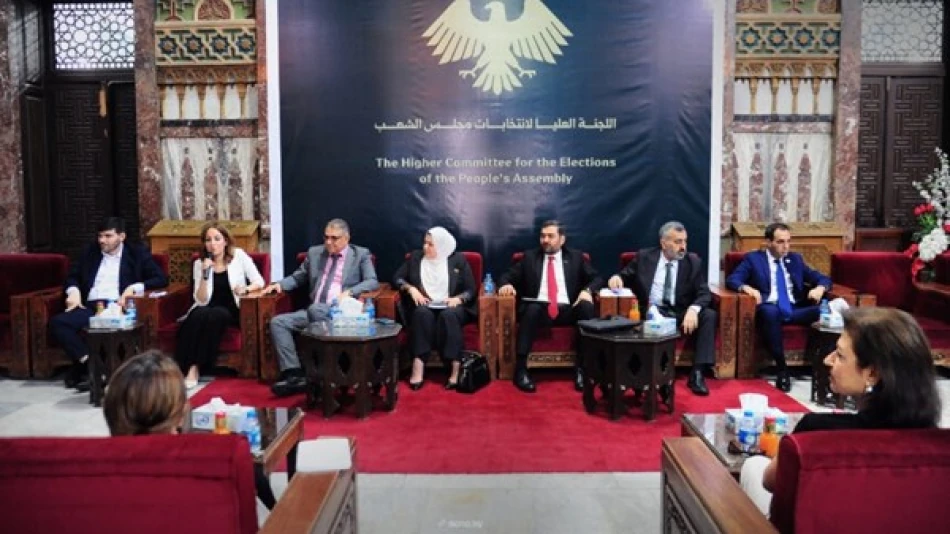
Syria Postpones Parliamentary Elections in Several Governorates
Syria Excludes Three Provinces from September Parliamentary Elections Citing Security Concerns
Syria's Supreme Committee for People's Assembly Elections announced Saturday that three provinces will be excluded from the country's upcoming parliamentary elections scheduled for September, marking another sign of the government's limited territorial control more than a decade after the conflict began. The decision affects Sweida, Hasaka, and Raqqa provinces, where Damascus lacks full administrative authority.
Government Cites Sovereignty Requirements
Committee spokesperson Nawar Najma told the Syrian Arab News Agency that the exclusion stems from "security challenges" in the three provinces. He emphasized that parliamentary elections are a "sovereign matter" that must be conducted only in territories under full state control, including complete oversight of official departments.
The 210 seats allocated to these provinces will remain reserved until conditions allow for voting, according to the committee. Elections in the remaining government-controlled areas are scheduled between September 15-20.
A Window into Syria's Fragmented Reality
This electoral exclusion underscores the complex territorial divisions that persist in Syria thirteen years after the uprising began. Each of the three excluded provinces represents different aspects of Damascus's limited reach:
Hasaka Province: Kurdish Autonomy
Much of Hasaka remains under the control of the Syrian Democratic Forces (SDF), a Kurdish-led coalition that has established de facto autonomous governance across northeastern Syria. This region has functioned independently since 2012, maintaining its own administrative structures and security forces with backing from a US-led international coalition.
Raqqa: Post-ISIS Reconstruction Challenges
While Syrian government forces have regained nominal control over parts of Raqqa province, the former ISIS stronghold continues to face security instability. The province's infrastructure remains severely damaged from years of conflict, and various armed groups still operate in rural areas.
Sweida: Druze Resistance to Central Authority
The southern province of Sweida, predominantly inhabited by the Druze minority, has maintained relative autonomy throughout the conflict. Local communities have resisted both opposition forces and full integration into government structures, preferring to manage their own security and administrative affairs.
Electoral Legitimacy Questions
The exclusion of these provinces raises questions about the representativeness of Syria's parliamentary system. International observers have consistently criticized Syrian elections as lacking credibility, pointing to restrictions on opposition candidates and limited access for international monitoring.
Previous Syrian elections, including the 2021 presidential vote that returned Bashar al-Assad to power, were similarly conducted only in government-controlled territories. The European Union, United States, and other international actors rejected those results as neither free nor fair.
Regional Context and Implications
Syria's fragmented electoral process contrasts sharply with reconstruction efforts in other post-conflict Arab nations. While Iraq has managed to conduct nationwide elections despite security challenges, Syria's approach reflects the government's prioritization of territorial control over inclusive democratic processes.
The decision also highlights the ongoing relevance of external actors in Syrian governance. US forces remain present in northeastern Syria, Turkey controls areas along the northern border, and Russia maintains significant influence over government-held territories. These competing influences complicate any unified electoral process.
For the Assad government, proceeding with partial elections serves to project normalcy and legitimacy while acknowledging practical limitations. However, this approach may further entrench Syria's de facto partition, potentially complicating future reconciliation efforts and international recognition of electoral outcomes.
Most Viewed News

 Layla Al Mansoori
Layla Al Mansoori






